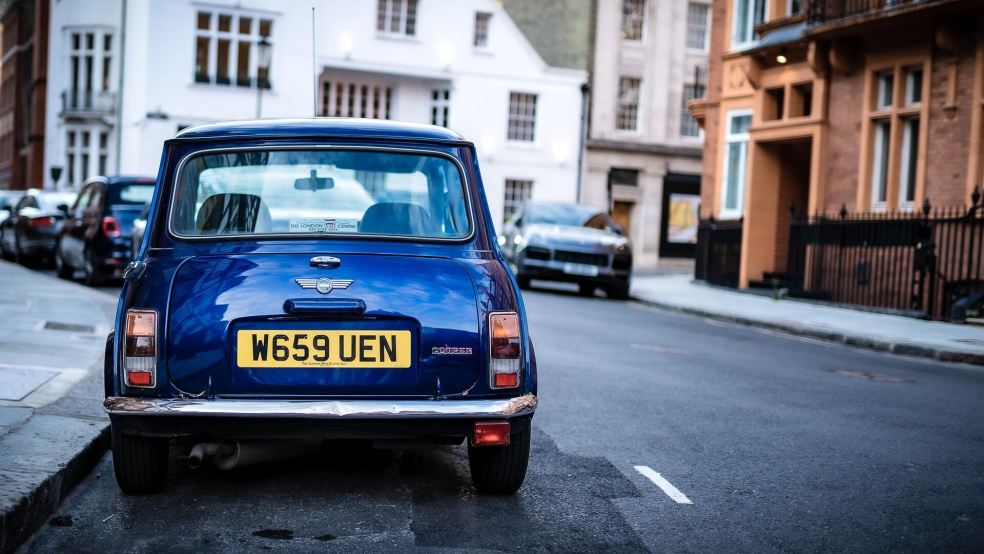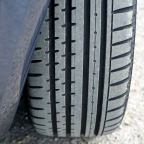
Top 10 most googled Car Tax questions
There are various rules and legislation in place to protect us and our vehicles on the road. This includes tax, MOT tests and insurance, which all help to ensure that our cars are safe to drive on the road and that our roads are properly maintained.
From looking for the best car deal on a comparison site to working out how to jump-start a car, we often turn to the internet to help answer our burning questions about these subject matters.
Top 10 most googled Car Tax questions
It's important that you have correctly taxed and insured your vehicle, otherwise, you could face penalties and prosecution. However, it can seem a daunting process, which is why Google often sees a high volume of searches for our most popular car questions.
Tax experts at income-tax.co.uk have compiled online search data to reveal the most popular monthly searches for Car Tax topics in the UK. We've broken down each of the most googled car questions about tax-related topics to help give you an insight into all the important information you need to know.
Is my car taxed?
The easiest way to check if your vehicle is taxed is to use the government checker. The only information that you need to input is your car's registration number.
Just as you must insure your car, it is a legal requirement that you must tax your vehicle. The only exception is if your car is kept off the road and has a Statutory Off Road Notice (SORN). You will need to tax your car when it is first registered, which will cover your car for the next 12 months.
How much is my Car Tax?
The first tax payment that you make when you register your car is based upon its CO2 emissions. Diesel cars that don't meet the Real Driving Emissions 2 (RDE2) nitrogen oxide emissions standard have a higher tax rate. The payment you make will cover your car for the following 12 months.
After the first 12 months are finished, you will have to pay a different tax rate, which is the rate you will pay from this point onwards. The rate will vary depending on when you pay the tax. A single 12-month payment will be lower than if you decide to pay for 12 months in two six-month payments.
An electric car that has zero emissions is exempt from road tax for the first, second and subsequent tax years. Vehicles with other fuel types have different tax rates, as do vehicles with a car worth over £40,000. Owners will have to pay an additional £355 per year if their car falls into this category.
When is my Car Tax due?
The date that your Car Tax is due will depend on when you last taxed it. You can visit the government website to see when your vehicle is due to be taxed. You still need to tax your car even if a payment is not due because you are exempt because you are disabled or for another reason.
You will need to update your tax class if your car was previously owned by a disabled individual or if you are disabled and you are taxing your vehicle for the first time. This information can only be updated at a Post Office that deals with Car Tax. You will need the payment for the tax, or your bank details to set up a Direct Debit when you visit to. update your Car Tax.
In some instances, you may be required to take in your logbook or the green slip from the logbook if you are the vehicle's new owner. You can apply for a new logbook if you do not have this information.
How to tax my car?
You can tax your vehicle via the government website. You will need the reference number that is on your vehicle log book, recent V11 reminder letter or the green slip from your logbook if you have recently purchased the car.
The DVLA (Driver and Vehicle Licensing Agency) allows you to set up a Direct Debit so that your vehicle tax will automatically renew when it is due to expire.
You can choose to pay every month, every six months or once a year. The payments will automatically come out of your account on the first of each month. There is a surcharge of 5% if you choose to pay monthly or every six months, but there is no surcharge if you pay annually.
The DVLA will send you a reminder letter or email when your tax is due to run out. You will also be notified by the same method once the payment has been taken out of your account.
How to cancel Car Tax?
You can contact the DVLA if you want to cancel your Car Tax because you no longer own the vehicle or you are taking it off the road. The DVLA will refund you for any remaining months left of your current Car Tax.
You must tell the DVLA when you sell your car, take it off the road or if it has been written off or scrapped. They must also be notified if your car is exported from the UK or if you become exempt from paying road tax. After giving the DVLA this information, you will be refunded automatically if you paid the tax via Direct Debit. Alternatively, you will be sent a cheque for the full months left of your tax, which is calculated from the fate that you notified the DVLA.
How to check if my car is taxed?
You can view your car's tax status on the government website, along with its MOT status and other important information about the vehicle. This includes the fuel and engine type, year of manufacturing and date of the last logbook (V5C) that was issued.
You can check the vehicle's tax rates if you have the 11-digit reference number from the logbook (otherwise known as the V5C registration certificate). The number can be found on the front page of your latest log book.
Can you tax a car without an MOT?
You will need a valid MOT certificate that shows your car has passed the test to tax your car. The MOT dates must cover the tax period of your car. If the MOT expires before your tax period ends, then you won't be able to use it when taxing your car.
It's important to organise an MOT test as soon as possible if the date is due to expire so that you can tax your car. It is a legal requirement to have a valid MOT certificate if your car is over three years old. MOT tests check that vehicles are safe to drive, have complete roadworthiness and have safe levels of exhaust emissions.
When does my Car Tax run out?
The date that your Car Tax runs out will depend on when you last taxed it. You can tax your vehicle every month, every six months or once a year. The DVLA will issue you with an email or letter that reminds you when your tax is due, which will include the information you need to tax it online.
You will be sent a late licensing penalty letter if you don't tax your vehicle on time, which is accompanied by an £80 fine. Your car is also at risk of being clamped or impounded by the DVLA if it is seen on the road without tax. This fixed penalty notice is reduced to £40 if you tax your vehicle and pay the fine within 28 days.
If you still fail to tax your vehicle or pay the fine, your information will be passed on to a debt collector who will come to collect the payment. You are also at risk of being prosecuted in court.
Can I tax my car while waiting for the logbook?
You cannot tax your vehicle without a logbook (VC5). However, you can apply for a new one and then tax your car at the Post Office. You must also have a new keeper slip if you have recently bought the car, which can be replaced by applying for one by post. A replacement VC5 costs £25.
You will need your VC5 to tax your vehicle online, via the phone or at the Post Office. You also need a new keeper slip if you are the new owner of the vehicle.
Can you tax a car without insurance?
It is a legal requirement to have car insurance, which you will need to buy before you tax your vehicle. The DVLA's database will know if you have an insurance policy in place, which will determine whether you are able to tax your car or not. The only instance that you won't need to tax your car is if your vehicle is off the road, as SORN vehicles don't need to be insured.
Car insurance helps to cover third party road users that are involved in an incident with you and often includes roadside assistance and cover if your vehicle is damaged.













